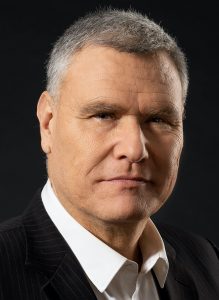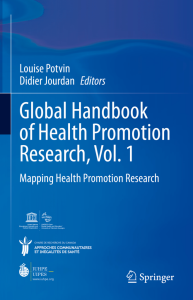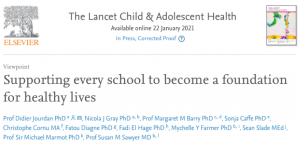UNESCO recently published a range of products that have been developed relating to a series of work exploring sexuality education in the digital space. Also a report was published based on a consultation on the health and wellbeing challenges facing young people in the context of school closures and other lockdown measures in the time of COVID-19.
The products related to exploring sexuality education in the digital space:
- Switched On Symposium Report:A report from a 3-day global symposium held in February (jointly by UNESCO, UNFPA, IPPF European Network and BZgA). The symposium explored the opportunities and challenges for capitalizing on digital spaces to strengthen efforts to deliver comprehensive sexuality education to adolescents and young people.
- A series of posters showcasing examples of digital spaces delivering sexuality educationto adolescents and young people across the world. This series of posters featured as part of the exhibition at the symposium ‘Switched On. The posters are snapshots of digital sexuality education providers who are doing just that – taking sexuality education to the digital spaces where adolescents and young people can search for and hopefully find, the information they need.
- Sexuality Education for Young People in Digital Spaces: A review of the evidence, commissioned by UNESCO and written by the Institute of Development Studies. This desk review examines the available evidence on the extent to which digital content can influence knowledge, attitudes and practices of adolescents and young people (aged 10–24 years), and looks at the potential for digital spaces to be used to add value to the delivery of comprehensive sexuality education (CSE).
- Support. Connection: How are young people engaging with digital spaces to learn about bodies, sex and relationships?, commissioned by UNESCO and written by Restless Development. This research aimed to further shed light on young people’s (aged 10-24) engagement with digital spaces for obtaining information and education about bodies, sex and relationships. The report presents the results of a global survey completed by almost 4,000 young people from around the world, as well as a series of focus group discussions carried out in five countries. It provides insight into how young people are using digital spaces to find answers to their questions, and their experiences in doing so.
The report Health and Wellbeing Experiences for Young People in the Times of COVID-19 is based on a consultation in May 2020 with young digital content creators and users. It is the results of a partnership between the YTH (youth tech health) initiative and UNESCO. The researchers wanted to know what challenges youth were facing, what has changed in their lives since the COVID-19 pandemic began and what has stayed the same, and what youth-facing/serving organizations like the YTH initiative could do to support them.



 About Didier Jourdan
About Didier Jourdan
